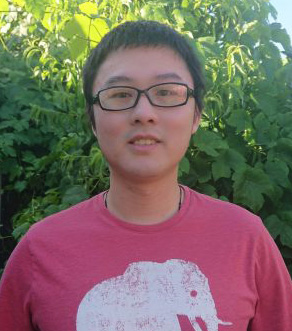Technology
U.S. ATLAS collaboration names UC Santa Cruz alum ‘Outstanding Graduate Student’
The organization representing the U.S. contingent of the international ATLAS experiment conducted with the world’s most powerful particle accelerator has presented its 2024 Outstanding Graduate Student Award to Yuzhan Zhao, who graduated from UC Santa Cruz with a Ph.D. in physics this year.

The organization representing the U.S. contingent of the international ATLAS experiment conducted with the world’s most powerful particle accelerator has presented its 2024 Outstanding Graduate Student Award to Yuzhan Zhao, who graduated from UC Santa Cruz with a Ph.D. in physics this year.
The U.S. ATLAS Collaboration presented Zhao with the award on July 17 at its annual meeting in Seattle, marking the first time a UC Santa Cruz student has received the honor. The presenters cited his “outstanding contributions” to the ATLAS experiment, particularly his “careful and expert characterization of low-gain avalanche detector prototypes for the ATLAS High Granularity Timing Detector,” as well as other contributions to V+jets modeling, software tools, and analysis.
During his third year as a Ph.D. student, Zhao received a Graduate Instrumentation Research Award from the American Physical Society that supported research with physics professor Bruce Schumm at the Santa Cruz Institute for Particle Physics (SCIPP) to develop particle-detector instrumentation. Then, Zhao went on to apply those devices to a planned experimental upgrade by the ATLAS collaboration, according to SCIPP Director Jason Nielsen.
SCIPP faculty, research staff, students, engineers, and technicians play major roles in experiments at the most advanced accelerator laboratories in the world, including CERN—the European Organization for Nuclear Research—to answer the most important questions in particle physics and high energy astrophysics.
Because these efforts usually include groundbreaking work on the technologies needed to advance this research, SCIPP is known as a world leader in the development of custom readout electronics and silicon micro-strip sensors for state-of-the-art particle detection systems.
Always creating new opportunities, SCIPP also pursues the application of these technologies in other scientific fields, such as neurophysiology and biomedicine.
The international ATLAS experiment collects and studies data from the Large Hadron Collider, the world’s most powerful particle accelerator. The U.S. collaboration, funded by the Department of Energy and National Science Foundation, includes 50 U.S. institutions and approximately 1,000 scientists, students, engineers and technicians.